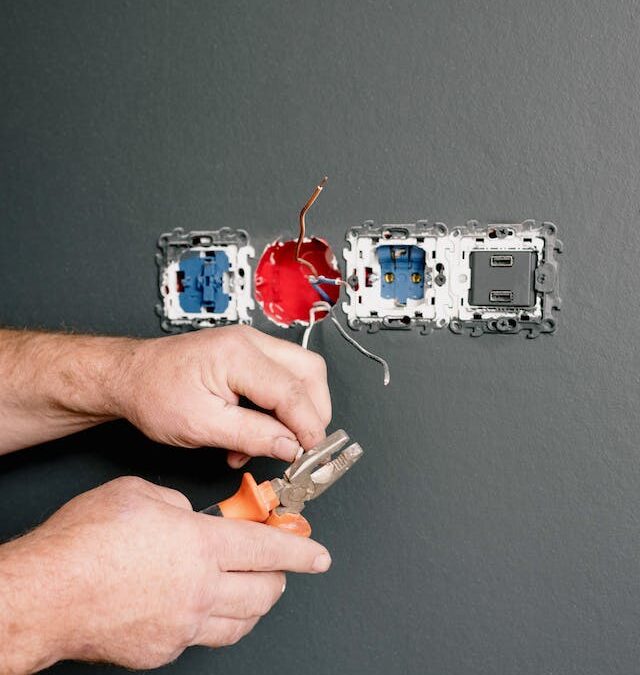Electricity is an integral part of our everyday lives, powering our homes and allowing us to do daily tasks. However, electrical emergencies can occur unexpectedly, posing risks to the safety of our homes and families.
It’s important to know what constitutes an electrical emergency and understand the appropriate steps to take in such situations. What common electrical emergencies can occur in your home, and how should you respond?
Electrical Fires
One of the most severe electrical emergencies is an electrical fire. Faulty wiring, overloaded circuits, or malfunctioning appliances can cause fires. If you encounter an electrical fire in your home, it’s crucial to:
- Call emergency services (such as the fire department) and evacuate all occupants from the building.
- Use a fire extinguisher specifically designed for electrical fires to try extinguishing the flames, if safe to do so.
- Never use water to extinguish an electrical fire; it can conduct electricity and exacerbate the situation.
Once the fire has been put out, contact an electrician to investigate and resolve the original problem to eliminate the risk of a future fire.
Electric Shocks
An electric shock occurs when the body comes into contact with an electrical voltage. This can happen when touching exposed wires, faulty appliances, or water near live electrical sources.
Experiencing an electric shock can be life-threatening. If you or someone in your home has been shocked, quickly:
- Turn off the power source if it is safe to do so.
- Call for emergency medical assistance.
- Avoid touching the shocked person directly.
Any wire, appliance, or outlet that causes an electrical shock should be fixed as soon as possible by an experienced electrician.
Power Outages
While not as serious as electrical fires or electric shocks, power outages can still disrupt daily activities and pose inconveniences. And in extreme temperatures, having no power can even be dangerous.
Before assuming your power outage is a general one in your area, ensure you have ruled out internal issues by doing the following:
- Check your circuit breaker panel to see if any switches have tripped.
- See if your neighbors have power.
- Contact your electricity provider to report the outage and receive updates on the situation.
If the outage is confined to your home, you’ll need to contact an electrician to investigate the issue. Don’t wait to contact an electrician if your power is out and it is very hot or cold outside, as these high temperatures can affect the health of people and pets in the house.
Damaged or Tripping Circuit Breakers
Damaged or tripping circuit breakers can cause electrical failures and potential hazards, so it’s essential to address the issue as soon as possible. Flickering lights or discolored outlets can indicate a damaged circuit breaker. You may also smell a burning odor.
If you believe your circuit breaker is damaged or it keeps tripping, contacting a same-day electrician and having them evaluate the problem can prevent electrical hazards such as fires or shock from occurring.
Need an Emergency Electrician? Contact CoreTrade Electric
Electrical emergencies can be potentially hazardous, and knowing how to respond to them is crucial for your well-being and property. Regardless of what electrical issue you’re experiencing, it’s essential to have a professional assess the problem. If you need a same-day electrician in Virginia, contact CoreTrade Electric today—we are here to help!


